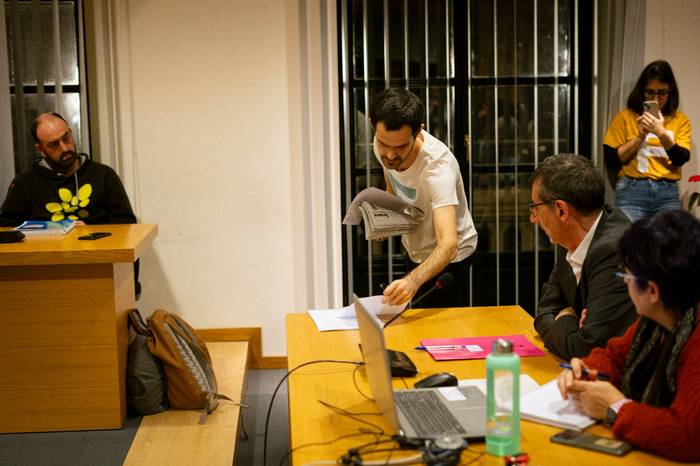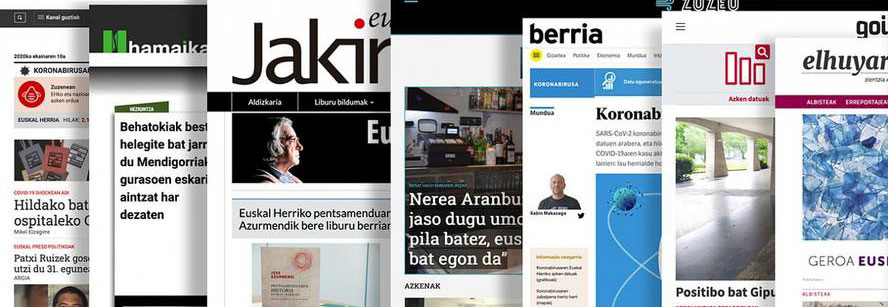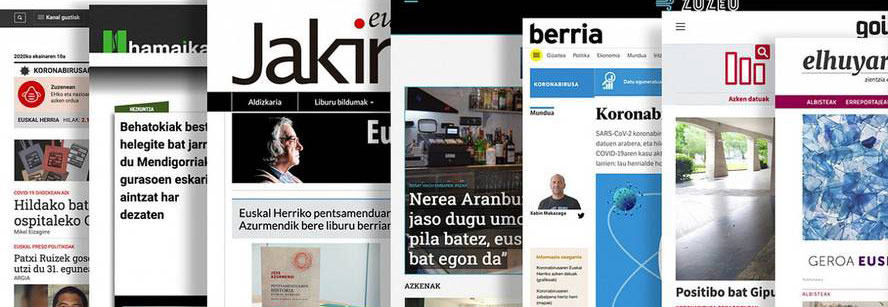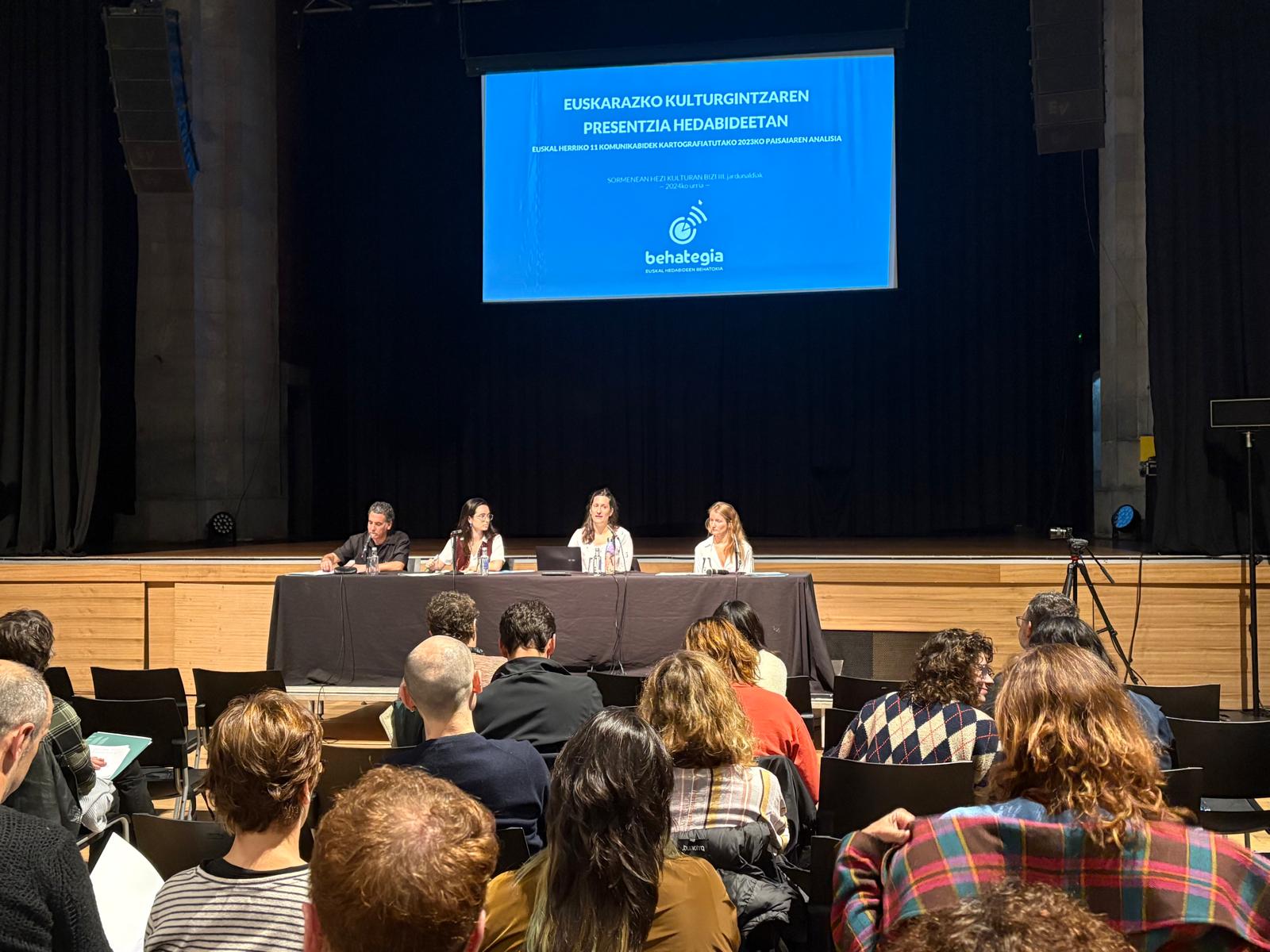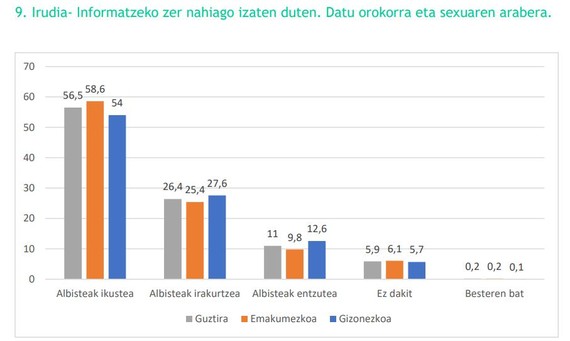Bingen Zupiria: "The media in Basque are too displaced to political and ideological positions"
- This Monday the first day of the “Communication in Basque in the decade of 2020” in the summer courses of the UPV/EHU has been celebrated. The reflection has been organised by the Basque Media Observatory, the Hekimen Popular Initiative Media Association and the Nor research group of the UPV/EHU. The Minister of Culture has made these statements at the Palace of the Zarzuela.

Making full-day readings is difficult, but if I had to make a general reading of the ideas I've heard in the follow-up I did from the network, it would be: Media in Euskera have advanced a great deal in the last four decades, for many reasons, among others, because in its day the digital age was addressed. We have grown a great deal, therefore, but also other languages in our environment, more than we do, and therefore we cannot fail to ensure that the Euskaldunberris who bring us to the Basque country, especially in the audiovisual field, which is what today’s young people consume most and what will be consumed most in the future.
It's a summary that's too risky, but I would stay with that. Subsequently, each of the rapporteurs has offered their vision to strengthen the media in Basque. Among them was the last act of the morning. The new Minister of Culture and spokesman for the Basque Government, Bingen Zupiria, and the co-founder of Goiena, Mikel Irizar, took part in the conference.
Mikel Irizar referred to the need to agree on a system of progress, to reach basic agreements in strategic thinking, and to the importance of local media in that future. He has also referred to the need to exchange information between local and national media, using the image of the lifts he has usually used, where information would move between premises and nationals. In his view, we are experiencing a good time of cooperation between the Basque institutions and the Basque media, and this has been demonstrated by the agreement reached in 2018 on subsidies.
Bingen Zupiria has been more pessimistic about the situation and has invited a great deal of reflection, but at the invitation, or that seemed to me at least, he has done so above all to the media in Basque. As if before the world did not exist – it is an exajeration – it has quickly stood before the time of COVID-19, underlining that this will change everything. At this time, it has differentiated the old and the new world and has set its limit on digitization.
He mentioned how he's seen the situation in Etxealdia: the world of distribution, the digital library, Netflix, the success of the information audience nearby -- that's all a new world for him. Newspapers, television (especially in front of the classical apparatus and listening)... It says that basically our communication system is nourished by the old world and that young people are not willing to pay for that world. “ETB, Berria, Deia... can be workplaces to make a new world. But then, how do you fund all that?” Regarding the economic situation, he pointed out that "very tight times are coming" and stressed the need to reflect on all this. The Basque Parliament has been the appropriate framework for this reflection.
He has left for the end of his speech what was the jewel of the day and since he had to leave to Bilbao, there has been no opportunity to talk about it. Pity. In any case, it seems that today we wanted to clear up that message so that everything can be pointed out. What is said here:
“The media in Basque are very aligned to political and ideological positions and that can be very uncomfortable. I don't know if having such obvious identifications, and generating these kinds of discomforts and difficulties, helps the consumption of products in Basque.
We can think that all of us who are vasco-speakers naturally welcome many of these contents that are generated in Euskera, but honestly, from within, it is not. I see the danger of the break-up between people who are trained vasco-speakers. That worries me.
I have been living with the government since 5 February – what happened with Zaldibar – and then the great aggression that I have seen at this time of the pandemic, and I believe that communicative content in Basque has played a major role in that. And, indeed, that has created great discomforts.”
That is where the words of the Minister of Education are over. It has already been mentioned from the institutions that the media in Basque are too displaced to certain areas of policy and anyone who has been following that world for a long time can interpret what it means, but the possibility of clarifying the question marks has remained in the air.
There have also been many interesting content in other speeches that we will discuss in a second chapter.
Gaur abiatu da Bizi Baratzea Orrian kide egiteko kanpaina. Urtaro bakoitzean kaleratuko den aldizkari berezi honek Lurrari buruzko jakintza praktikoa eta gaurkotasuneko gaiak jorratuko ditu, formato oso berezian: poster handi bat izango du ardatz eta tolestu ahala beste... [+]
Over the past few weeks I have had these two books in my hands: The space of reflection in Basque (Euskaltzaindia, 2024) and Mariano Ferrer, reflexive journalism. Journalism and commitment (Erein, 2023) . I have read that 42.2% of Basques see ETB1 and 20.6% read the Basque... [+]
Over the past few weeks I have had these two books in my hands: The space of reflection in Basque (Euskaltzaindia, 2024) and Mariano Ferrer, reflexive journalism. Journalism and commitment (Erein, 2023) . I have read that 42.2% of Basques see ETB1 and 20.6% read the Basque... [+]










